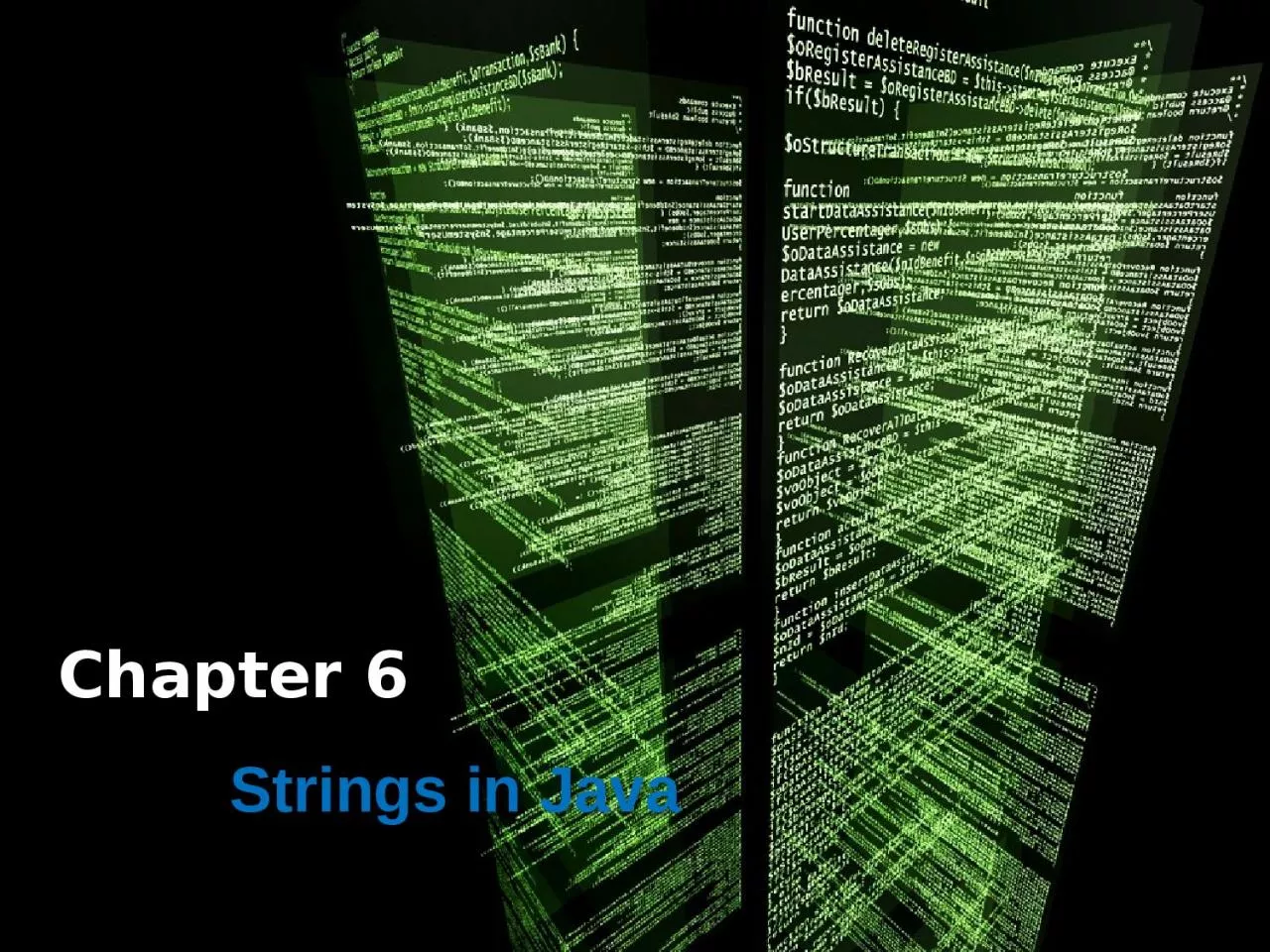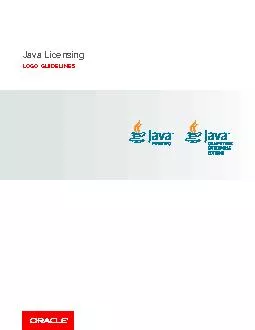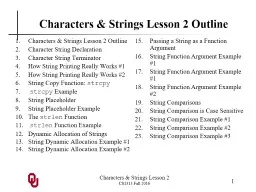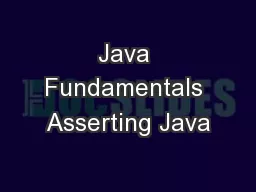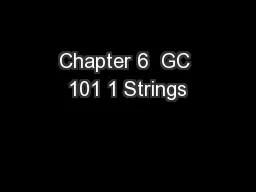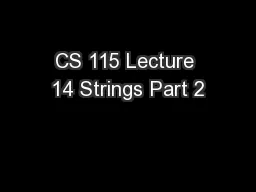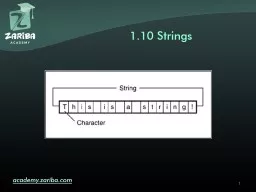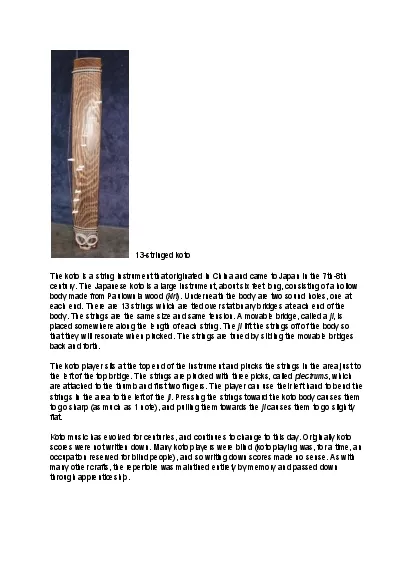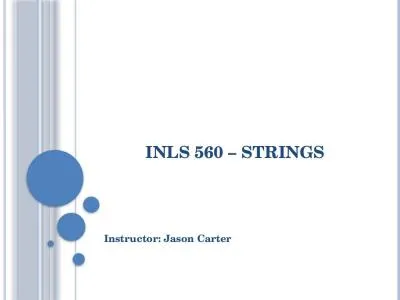PPT-Strings in Java Chapter
Author : hadley | Published Date : 2024-02-03
6 In This Chapter you will be able to Understand the nature of Strings in Java Work with substrings Use StringBuilder and StringBuffer Class Apply different
Presentation Embed Code
Download Presentation
Download Presentation The PPT/PDF document "Strings in Java Chapter" is the property of its rightful owner. Permission is granted to download and print the materials on this website for personal, non-commercial use only, and to display it on your personal computer provided you do not modify the materials and that you retain all copyright notices contained in the materials. By downloading content from our website, you accept the terms of this agreement.
Strings in Java Chapter: Transcript
Download Rules Of Document
"Strings in Java Chapter"The content belongs to its owner. You may download and print it for personal use, without modification, and keep all copyright notices. By downloading, you agree to these terms.
Related Documents

